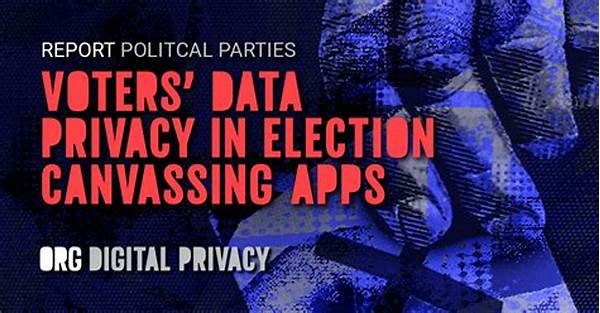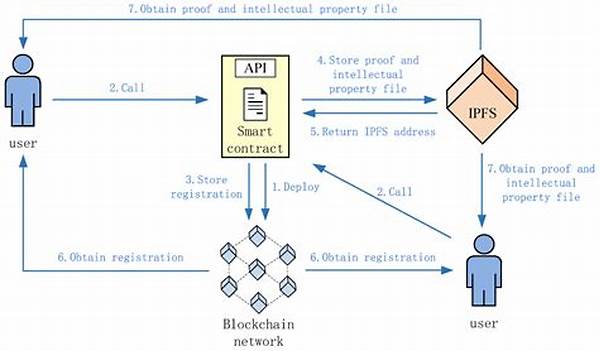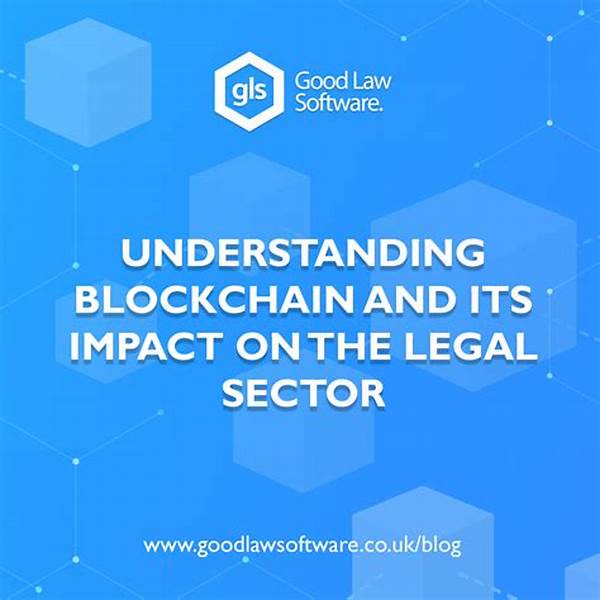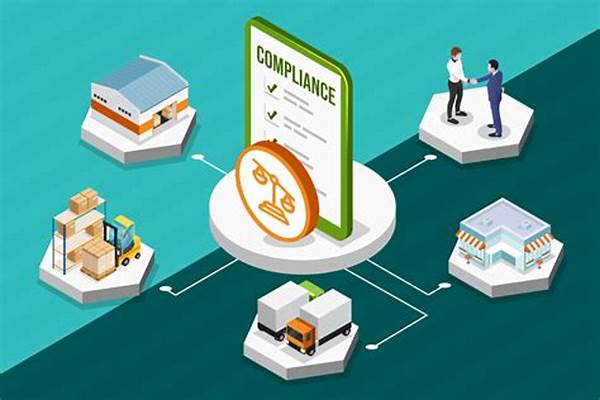Under the dim glow of his desk lamp, Alex pondered the envelope that lay before him. It was a voter identification form that had just arrived in the mail, but it felt heavier with unseen implications. Like many others, he was facing the daunting task of navigating a system that seemed mired in complexity and fraught with a nagging doubt—how much of his personal information was truly safe?
Read Now : Alternative Dispute Resolution For Ip
When Privacy Goes MIA
Yo, let’s be real, guys. When it comes to this whole voting gig, it’s supposed to be about democracy and all that jazz, right? But then you hear the words “privacy concerns in voter identification,” and suddenly, it feels like you’ve stumbled into a conspiracy movie. Picture this: handing over your most personal info just to get the okay to vote. It’s like, “Dude, can I just vote without giving away my life story?!” The whole idea of sharing your private details to prove you exist is kinda whack. It’s no secret that these privacy concerns in voter identification have people side-eyeing the system, questioning who really has their back. The fear is that once the info is out there, it’s like a genie you can’t shove back in the bottle.
And it’s not just about being paranoid, fam. This stuff actually has consequences. Imagine the wrong peeps getting their hands on voter info. That could totally mess things up on a serious level. So, while we’re here just trying to cast our ballots like responsible adults, these privacy concerns in voter identification are like a constant black cloud hanging over the whole scene. It’s time we start asking, “What’s the real cost of maintaining my right to vote without selling my privacy down the river?”
The Real Deal with Data
1. More Secrets, Less Trust: With privacy concerns in voter identification, it’s no surprise that some of us feel like we’re living in a reality show, constantly watched.
2. Get Real About Data Breaches: Losing sleep over data breaches? You’re not alone. Think about how sketchy it feels imagining your details getting leaked everywhere.
3. Over-Sharing is Not Caring: Handing over extensive personal info feels kinda like your privacy is up for grabs, and nobody wants that.
4. The Domino Effect: Privacy concerns in voter identification can lead to bigger issues, like affecting voter turnout ’cause of this constant skepticism.
5. Tech Fails, Big Time: Relying on tech for ID verification is chill until it glitches. Then you’re just standing there, like, “Well, now what?”
Personal Info & Public Impact
Alright, so here’s the scoop: Privacy concerns in voter identification ain’t just some niche issue—it’s a full-on debate with some major vibes. We’re talking about personal deets that people don’t wanna throw into a digital black hole where it could be anyone’s game. Imagine logging onto social media only to find your ID info trending online—nightmare fuel, right? That’s the kind of stuff people are worried about. The idea that your public duty like voting could put your private life on blast? A hard no for most folks.
Thing is, this isn’t just affecting those who regularly hit the polls, it’s messin’ with everyone’s psyche. When some peeps hear “privacy concerns in voter identification,” they get cold feet about even registering. It’s all about trust, baby! Are the powers-that-be really giving us the deets on how they’ll guard this info, or are we just crossing our fingers and hoping for the best? Trust gets shaky, and when that happens, democracy takes a hit, too. Let’s face it: the last thing anyone wants is to feel like their vote means airing their private life all over town.
What’s the 411 on Protection?
It’s wild, but the struggle with privacy concerns in voter identification is real. Like, how much of our biz are we tossing into the digital universe just to tick a box?
1. Trust Issues: People don’t wanna hand over their info if they can’t trust who’s holding it.
2. Digital Barrier: More steps just to vote? That’s how you lose people’s interest.
3. Safety Net? Maybe Not: Security measures sound cool, but they better be solid as a rock or we’re in deep trouble.
4. Who’s Watching: We’ve got this nagging question—who’s really handling my info, and are they even qualified?
Read Now : Machine Learning For Demand Planning Insights
5. Hackers Gonna Hack: Nerds with hacking skills dream about this stuff—easy access to personal data. Not cool!
6. Real Deal Transparency: Give us the lowdown on what’s happening with our info, or expect serious side-eye.
7. Back it Up: Is my data floating around in the cloud? Not unless it’s locked down tight, thanks!
8. Join the Club: Inclusion is key. Leaves out those not tech-savvy and we’re all gonna feel it.
9. Adapt or Get Lost: Tech changes fast; the systems better adapt or we’ll be voting by smoke signal.
10. Privacy Impacting Turnout: Long-form voter ID procedures? Recipe for lower voter turnout.
Keeping Your Data Secure
So, we’ve yapped a lot about privacy concerns in voter identification. But how do we actually keep voter info locked down like Fort Knox? Picture everyone’s mega-secret data stored in a vault with like, Shaolin master-level security guarding it. Real-world scenario? Not quite. But the measures should feel like it! We’re talking serious cybersecurity squared up with transparency, so the public feels comfy about where their info’s hangin’ out.
The name of the game is balance. People deserve to cast their vote without feeling exposed like they’re wearing jeans a size too small in public. But that means beefing up the infrastructure, like yesterday, and opening a clear line about what goes down behind closed doors. Bottom line, make peeps feel like their data is sacred, or risk them choosing the couch over the voting booth.
Real Talk on the Voting Dilemmas
See, privacy concerns in voter identification can be super tricky. Folks hear ID and think, “Who’s lookin’ at my digits?” It’s not about paranoia; it’s about human instinct—nobody wants to be that open book unless they’re the ones writing it. And it’s not gonna fly if the language is tech-jargon when peeps ask about info security.
Voting is supposed to be as simple as pie, but you toss in complicated procedures for ID and privacy becomes this whole new beast. The juiciest election gossip? It’s always those issues of trust, security, and accessibility. And that’s facts, fam. Societal change starts with knowing your info isn’t just some commodity to be tossed around. It’s intimate, and that deserves respect, period.
Smooth and Secure Voting Vibes
Ending on a real note, privacy concerns in voter identification affect how, when, and if people choose to vote. It’s a classic case of catch-22: Wanting to participate in democracy but not wanting your private details as public property. Crazy, right? But serious talks about reforming and securing the voter identification process should be all up in everyone’s playlist. It’s about preserving the personal stuff while still getting that all-important vote done.
When casting a ballot becomes less about being an open book and more of exercising one’s right securely and confidently, that’s when we know progress has been made. Balancing transparency with security is the ticket to keeping the vibes right in the electoral process, for real. Here’s to more secure and stress-free voting adventures, minus the mental gymnastics on privacy.



